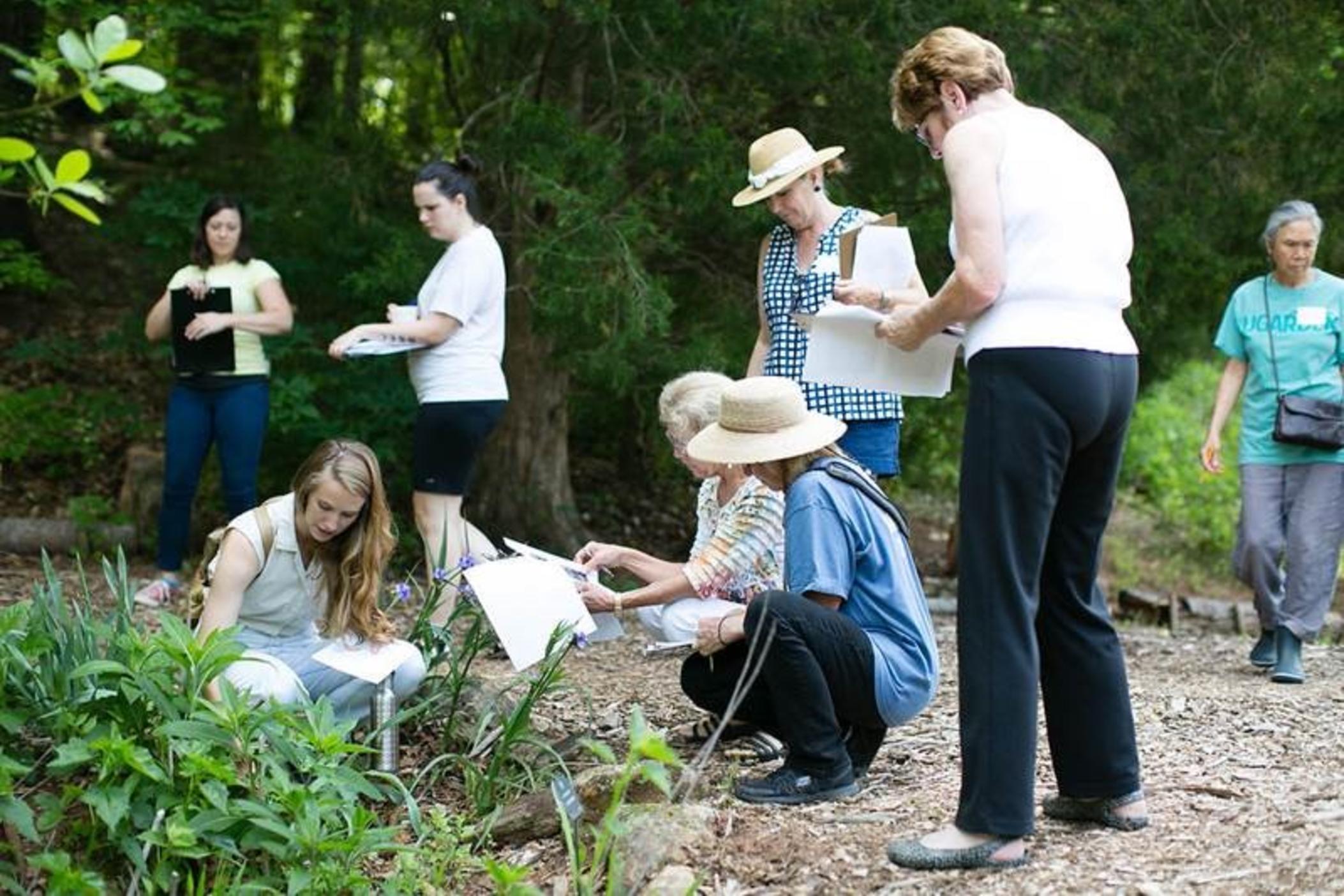Section Branding
Header Content
UGA certificate program aims to foster interest in native plants
Primary Content
A University of Georgia certificate program aims to foster broad interest in Georgia’s native plants.
The State Botanical Garden of Georgia’s Certificate in Native Plants focuses on ecological impact. It typically attracts lifelong learners, professionals who work with plants and college students.
Cora Keber is the director of education at the State Botanical Garden, a division of public service and outreach at the university. She says seeing people engage with plants and nature makes her hopeful.
“I see the next generation and our current generations being empowered by the information that they’re getting,” said Keber. “So that we will start to make relationships with conservation and preservation for our landscapes. And that is hopeful to me in a lot of ways.”
According to the Georgia Native Plant Society, native plants are those that are “naturally occurring, either presently or historically, in any ecosystem of the United States.” These plants support native insects like butterflies, moths, and bees in ways that non-native plants cannot – through the food chain. Native insects, in turn, help bring in more native birds, lizards, toads and turtles.
Keber says she’s seen an increase in participation since the program’s beginnings in 2007. And when courses were forced to go online during the COVID-19 pandemic, they reached an even broader range of people.
Core classes in botany, plant taxonomy, natural communities of Georgia and plant conservation are still offered online. The program also requires electives, field trips, and volunteer service statewide.
“Another overarching goal was to create botanical literate citizens that can then go out into their own communities, whether it be in Athens or across the state or beyond our state borders as well,” said Keber. “To really have a knowledge base of native plants, to put that knowledge into community projects and stewardship projects of the land.”


